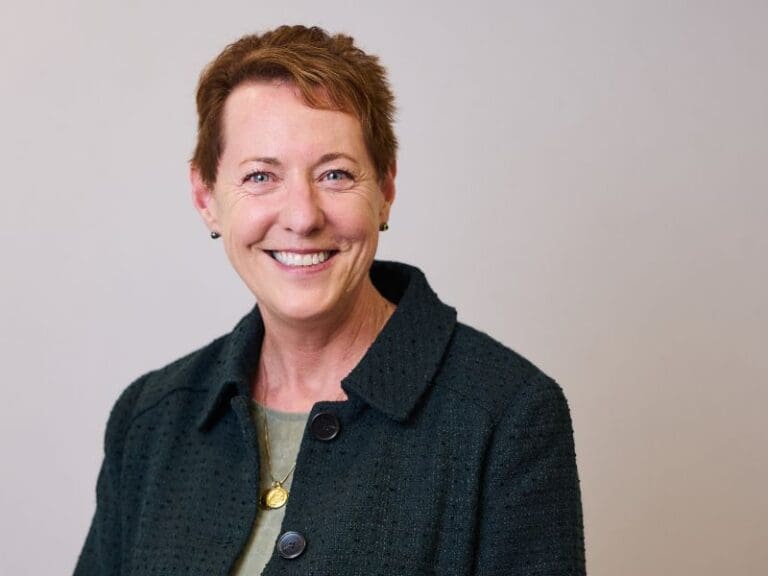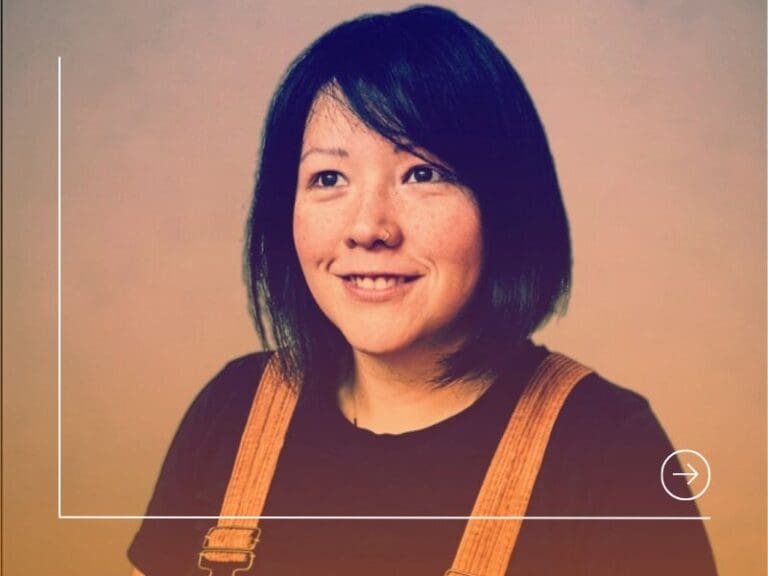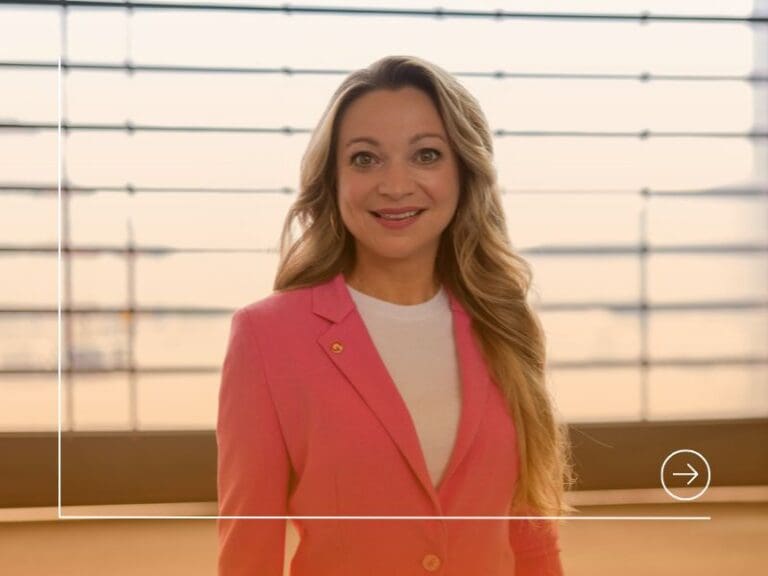Margaret Dawson is Chief Marketing Officer at SUSE, leading global marketing, brand strategy, and customer experience.
A seasoned tech executive, she’s known for crafting distinctive go-to-market strategies and empowering sales teams to drive growth. With 20+ years in tech, she’s held leadership roles at Chronosphere, Red Hat, Apptio, HP, Microsoft, and Amazon, shaping initiatives across cloud, cybersecurity, and open source. Margaret has worked extensively across Asia, Europe, and the Americas. Recognised as a top Woman in Cloud Computing and Mentor of the Year, she brings bold vision, strategic clarity, and deep industry insight to every role she takes on.
How did you land your current role? Was it planned?
The best opportunities often come when you least expect them or plan them, and in this case, I was not looking for a new role. However, I have maintained good relationships with most former colleagues, and in this case, the CEO of SUSE reached out to me based on the time we worked together at another company. Usually, when I speak to CEOs, I offer to help them find a new CMO from my network, and while I was happy to do that in this case, I found myself wanting to know more about the role myself. The more I learned about the company, its technology, and the leadership team, the more I wanted to jump in.
What are the key roles in your field of work, and why did you choose your current expertise?
I have been fortunate to have experienced a range of roles across products and technologies, marketing and operational leadership. Roles have included communications, product marketing, product management, Chief Digital Officer, Chief of Staff to the CEO, and head of global marketing or Chief Marketing Officer. Regardless of the role, what I love is being close to the product and to the customer, and trying to understand how to connect what our technologies or products do to what the customer is trying to achieve or solve for. I have chosen the CMO role, because marketing today requires an understanding of technology, the market and ecosystem, the customer, the digital landscape, content and how best to reach your target audience – all underpinned by a massive amount of data that must be collected, analysed and used to make decisions. Every day is different. I love looking at the data and what we are doing and trying to figure out how to break through the noise and help our customers. For me, it’s about making a positive impact on people, on a company, and on the world.
Did you (or do you) have a role model in tech or business in general?
My most influential role model was my first boss, Carole Tellier, with whom I worked in Detroit right after college. I was incredibly fortunate to have a woman manager in a male-dominated industry. While she passed away a few years ago, I carry the memory of her with me at all times. In addition, I have been blessed by having many mentors, role models and colleagues who I learn from every day – both good and bad. I’ve learned from leaders who bent the rules that I must maintain a high bar of integrity and ethics. I learned that it’s not always the loudest voice that is heard, and that often, the calmest voice is the one to pay attention to. I’ve learned that people of all ages and experiences have something to teach us – and I always gain knowledge from my mentees. Perhaps most importantly, I’ve learned we need to not lose sight of what is most important – our families, our friends, our health.
What are you most proud of in your career, so far?
Besides my children, I am probably most proud of how many people I’ve touched and hopefully helped in some way. I believe as a leader and manager, my job is to help every person I interact with realise their full potential and “shine their true light” as I like to say. I guess I am also proud that I can show people that you don’t have to have a technical background to succeed in technology. My education and background were communications and journalism, but I found I loved technology and figuring out how it works
What does an average workday look like for you?
I don’t think there is an average day, but there are some critical pieces I try to protect or keep consistent. I wake up early, around 4am, and drink two large glasses of water with my amino acids and immunity powder, and then I do yoga and meditation for 30 minutes. This grounds me for the day, and when I don’t have this time, I find my mind and body just feel out of whack, and it’s much harder for me to focus. On good days, I then go to the gym for weight training. I start meetings typically now at 6:00am Pacific (I live on the West Coast of the U.S.) to catch European colleagues. I have a stand-up with my leadership team every weekday at 7:30am PT – where we check in with each other, sync on what’s happening, and share information we all need to do our jobs. I truly believe in the power of this simple practice, and it does more than almost anything to keep a team aligned and to build trust. The rest of the day is a mixture of meetings, Slack, email, and focus times blocked on my calendar. Meetings are a mixture of 1:1s, meetings on upcoming events, data/analytics reviews, product training, and a myriad of other topics. I usually finish meetings by 3 or 4:00pm PT and take a break to walk the dogs, hang out with my husband, fix dinner, etc. This is another boundary time for me that I’ve kept since our children were small, as I really believe dinner should be sacrosanct and family time. I usually go back online for an hour before I get ready for bed and clean up email, create my hot list for the next day, and close all my browsers that have built up during the day :-). And I always read for 30 minutes in bed – usually fiction at this time, as I’ve often read so much tech, product, news, or non-fiction articles throughout my day.
Are there any specific skills or traits that you notice companies look for when you’re searching for roles in your field?
I have been blessed in that I have not often had to search for jobs in my field, as recruiters typically find me. However, there are absolutely skills and traits that most B2B technology companies are looking for in their CMO.
- Technical ability: Marketing has become increasingly technical, and most B2B technology companies want a CMO who understands the market, the product, and the technologies. While this does not mean you need to be hands-on-keyboard, it does mean you can have a credible conversation with an engineer, a product owner, a customer, or a partner.
- Executive Presence: Will you have a “seat at the table” and be a strong peer to the other executives? Can you represent the company with analysts, press, customers and partners? Are you persuasive in your approach?
- Data Fluency: Data is foundational to marketing as well as the overall company’s execution. A strong CMO understands not only critical marketing and sales KPIs but also overall business metrics, product telemetry data, and, in many cases, SaaS metrics. The CMO needs to partner with the head of sales to have a shared source of truth to reach goals around revenue, renewals, customer acquisition costs, etc.
- Strategic & Critical Thinking: Any leader ideally is able to see the big picture, not just their function, and help drive the overall business strategy. We are constantly analysing information from many sources, questioning assumptions, weighing options, and making decisions that ideally help grow the business, achieve competitive advantage, and support our customers’ goals.
- Inspiring Leadership: Everyone wants to be part of something bigger and be inspired by their leaders. This is true for marketing leaders as well. I have often found that marketing needs a leader who brings them credibility with the rest of the company.
- Ability to Scale: Whatever stage the company is at and its growth goals, you need to ensure the CMO can scale to that level. Frankly, early growth companies may not need a full-stack CMO at all.
- Empathy & Compassion: To be honest, not enough companies have this as a requirement, but I think it should be. With constant change across every industry now, the CMO will need to make tough decisions, and ideally, you can do so with compassion.
Has anyone ever tried to stop you from learning and developing in your professional life, or have you found the tech sector supportive?
I have absolutely hit roadblocks from people not believing I was capable or deserving of the roles I’ve had. Fortunately, I always found other people ready to champion and sponsor me, and I learned not to listen to the negative voices. It probably helped that I was always thinking about how I was modelling my life for my children, and I always told them I would land on my feet, and they never had to worry about that. Whenever I’ve needed the universe to support me, someone and something have always shown up. The tech sector can be brutal. But for every misogynist and alpha tech bro that tries to block, bully or intimidate me, there is someone else ready to believe in me or clear the path. In turn, I have done that for many other people.
Have you ever faced insecurities and anxieties during your career, and how did you overcome them?
Everyone has moments of insecurity and anxiety in their life. I overcome those moments by sticking to my strong inner voice mantras: “I am worthy; I am good enough; I am loved, I am deserving.” And I focus and meditate on what is possible, and after saying it enough times, I truly believe I will get what I need, or I will be okay, or I will succeed. A lot of this goes back to using the tools to stay grounded in who I am and believing in myself. This has been many years of work. Honestly, my children also were incredibly inspiring and motivational, as I did not have time to feel insecure, as I needed to support my family.
Entering the world of work can be daunting. Do you have any words of advice for anyone feeling overwhelmed?
First, even if you are just starting out, you have talents, skills and traits that are amazing. Take time to think about and write down what you have in abundance and what you love doing and are good at. We are so quick to criticise ourselves; we don’t realise how incredible each of us is.
Second, be ready to take big risks. That might mean moving across the country or around the world for a job. It might mean trying a new career path, different from your degree. Finally, ask for help. I can tell you that the vast majority of people are willing to meet you for coffee, introduce you to someone, or try to help. But you have to ask for help. Use your network, the networks of those around you, and talk to and meet with as many people as you can. Leverage LinkedIn as a platform to expand your network. As I always tell people I mentor, be ready to buy 100 cups of coffee – if you do, magic will happen.
What advice would you give other women wanting to reach their career goals in technology?
Know that you ARE good enough just the way you are. You don’t have to stop doing something or start doing something to deserve this job or role. Find your champions, a mentor, a sponsor, or someone you can trust who will be honest and help you. Don’t settle because you aren’t fully qualified. 50% of your skills can serve as a foundation of almost any role – the rest you can learn. Curiosity and the willingness to learn are skills I will hire for every time. Maintain a growth mindset and keep learning. Finally, when you do make it, raise up other women. Women often act as if there is a scarcity of positions open for us. There is not. There is an abundance.








